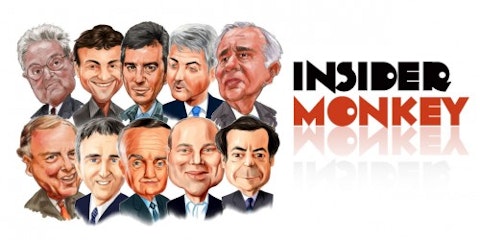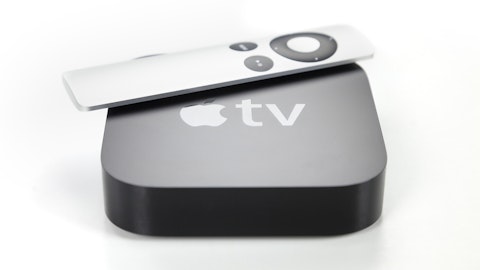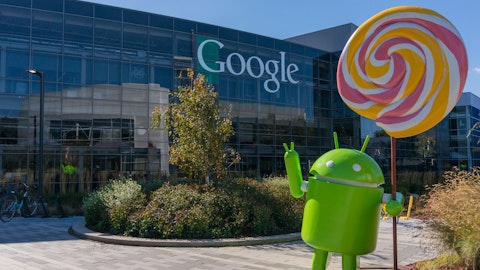At Insider Monkey we consider hedge fund sentiment regarding a stock to be very important, because piggybacking on hedge funds’ best ideas is probably one of the easiest ways to generate returns that can beat the market. That’s why each quarter we gather data from 13F filings of a pool of over 700 hedge funds and other large money managers and look at the stocks in which they invest. Generally, these investors prefer large- and mid-cap stocks, which is not surprising, taking into account that the total value of Assets Under Management for the hedge fund industry currently stands at around $2.70 trillion. However, choosing to invest in large-cap stocks is not a very lucrative idea, especially for smaller investors. The Credit Suisse Hedge Fund Index, which measures the performance of the hedge fund industry, has returned around 2.90% year-to-date, outperforming the S&P 500 by around one percentage point. With this in mind, we have compiled a list of the ten most popular stocks among the funds that we track, according to the latest round of 13F filings for the end of June.

However, even though these stocks ranked as the most popular, we think that a retail investor that aims to beat the market over the long-term should think twice before buying shares of these companies. Large- and mid-cap stocks usually are more efficiently priced due to their popularity, and, therefore, cannot provide high returns. However, there is another way to take advantage of hedge funds’ stock-picking skills without paying high fees and without engaging in a complex analysis of stocks. We determined that imitating the most popular small-cap ideas among the funds we track can beat the market by around one percentage point per month. Based on our backtests that involved hedge funds’ 13F portfolios between 1999 and 2012, we developed our small-cap strategy that consists of imitating a portfolio of 15 top small-cap picks among hedge funds and, since August 2012, this strategy returned around 118%, beating the S&P 500 ETF (SPY) by some 60 percentage points (read more details here).
Nevertheless, let’s take a closer look at the most popular stocks in which hedge funds invested their capital during the second quarter. On the first spot is Allergan PLC (NYSE:AGN), which was formerly known as Actavis. Actavis was the most popular stock at the end of March, as well, trumping Apple Inc. (NASDAQ:AAPL), which at the end of the second quarter was also on the second spot. Allergan PLC (NYSE:AGN) was included in the equity portfolios of 150 funds from our database at the end of June, while the aggregate value of their holdings amounted to $20.70 billion. In this way, hedge funds remained bullish on Allergan PLC (NYSE:AGN), as even though the number of investors with long positions declined from 157 at the end of March (for Actavis), they still hold around 17% of the company’s stock, which is a very high figure for a large-cap stock. And hedge funds are right to like Allergan. The stock has gained around 22% since the beginning of the year, and the company’s growth strategy based on making a number of significant acquisitions in the last years is building it towards being one of the leaders of the healthcare sector. The drug manufacturing industry is also one of the best performing, having returned 22% year-to-date. Among the 150 funds that disclosed long positions in Allergan in their latest 13F filings, the largest stakes were held by John Paulson’s Paulson & Co. and Andreas Halvorsen’s Viking Global, which held 7.17 million shares and 6.80 million shares respectively at the end of June. Other investors bullish on Allergan PLC (NYSE:AGN) include Daniel Och’s OZ Management, Stephen Mandel’s Lone Pine Capital, and Larry Robbins’ Glenview Capital.
On the second place, as stated earlier, is Apple Inc. (NASDAQ:AAPL), in which 142 funds held in aggregate $21.27 billion worth of stock, down from 150 investors holding $21.52 billion in stock a quarter earlier. Even though Apple is the second-most popular company in terms of the number of funds with long positions, the aggregate value of their stakes amounts to only 3% of the company’s common stock, which is a signal that on average, hedge funds are underweight Apple. There are reasons for that, because despite the stock’s appreciation and the company’s strong financial results, Apple Inc. (NASDAQ:AAPL) remains a one-product company, and the market’s reaction to weaker-than-expected iPhone sales shows that the company needs to address this issue. Nevertheless, Apple has many fans among big investors, such as Carl Icahn, who holds around 52.76 million shares as of June 30, and who has been saying for months that Apple is a “no-brainer” investment. Far behind Icahn, the second-largest shareholder of Apple Inc. (NASDAQ:AAPL) in our database is billionaire Ken Fisher’s Fisher Asset Management, which holds 11.01 million shares. On the other hand, Stephen Mandel’s Lone Pine Capital unloaded 6.84 million shares of Apple during the April – June period and closed its position.





